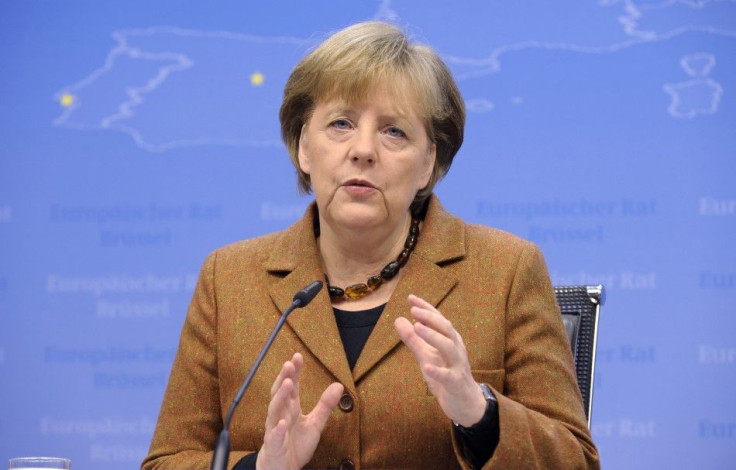Germany's Angela Merkel Faces Surprising Challenge on Fiscal Pact

German Chancellor Angela Merkel faces an unexpected challenge in getting new euro-zone budget-discipline rules approved at home, after the government confirmed on Saturday the new treaty will require a two-thirds majority in both houses of parliament.
This will leave Merkel depending on major opposition parties, who -- despite having backed her in the past on a second Greek bailout package and on extended powers for the bailout fund -- are likely to set conditions for their support such as new measures to stimulate European growth.
The need for a two-thirds majority for the fiscal compact was reported in a newspaper on Saturday and confirmed by a government representative. It has caused surprise as the German constitution already includes a debt-brake law, under which the federal government has until 2016 to cut its structural deficit to no more than 0.35 percent.
It was this law that inspired the European legislation on budget discipline.
However, as the fiscal compact treaty allows a country to be sued by its European partners in the European Court of Justice if it does not uphold budget rules, it affects sovereignty and the constitution, and hence requires a greater majority.
The government has in fact come to the conclusion that the fiscal compact will have to be ratified under Article 23 of the constitution, a government representative said in emailed comments. Article 23 covers the transfer of sovereign powers to the European level.
Last Monday, the opposition Social Democrats (SPD) and Greens backed Merkel in a Bundestag lower house of parliament vote on the second bailout for Greece, which needed only a simple majority. The package was approved in a comfortable 496-90 vote, with five abstentions, although Merkel faced growing revolt from within her own coalition.
Frank-Walter Steinmeier, head of the SPD parliamentary group, said Merkel was now dependent on the opposition. Chancellor Merkel must approach us immediately. She hasn't done this in the past. ... a two-thirds majority in the Bundestag and Bundesrat cannot be assumed as a matter of course, he said in a statement.
I cannot imagine that the pact would be approved without accompanying measures to support growth, Steinmeier added, urging Merkel to clarify as soon as possible how parliament would vote on the fiscal compact.
Both the SPD and the Greens have called for a European financial-transactions tax, which could be used to finance a stimulus program for the bloc.
European Union finance ministers meet on March 13 in Brussels, offering an opportunity to discuss the European Commission's blueprint on such a tax, which faces stiff opposition from London.
(Reporting by Alexandra Hudson and Holger Hansen; editing by Keiron Henderson)
© Copyright Thomson Reuters 2024. All rights reserved.






















